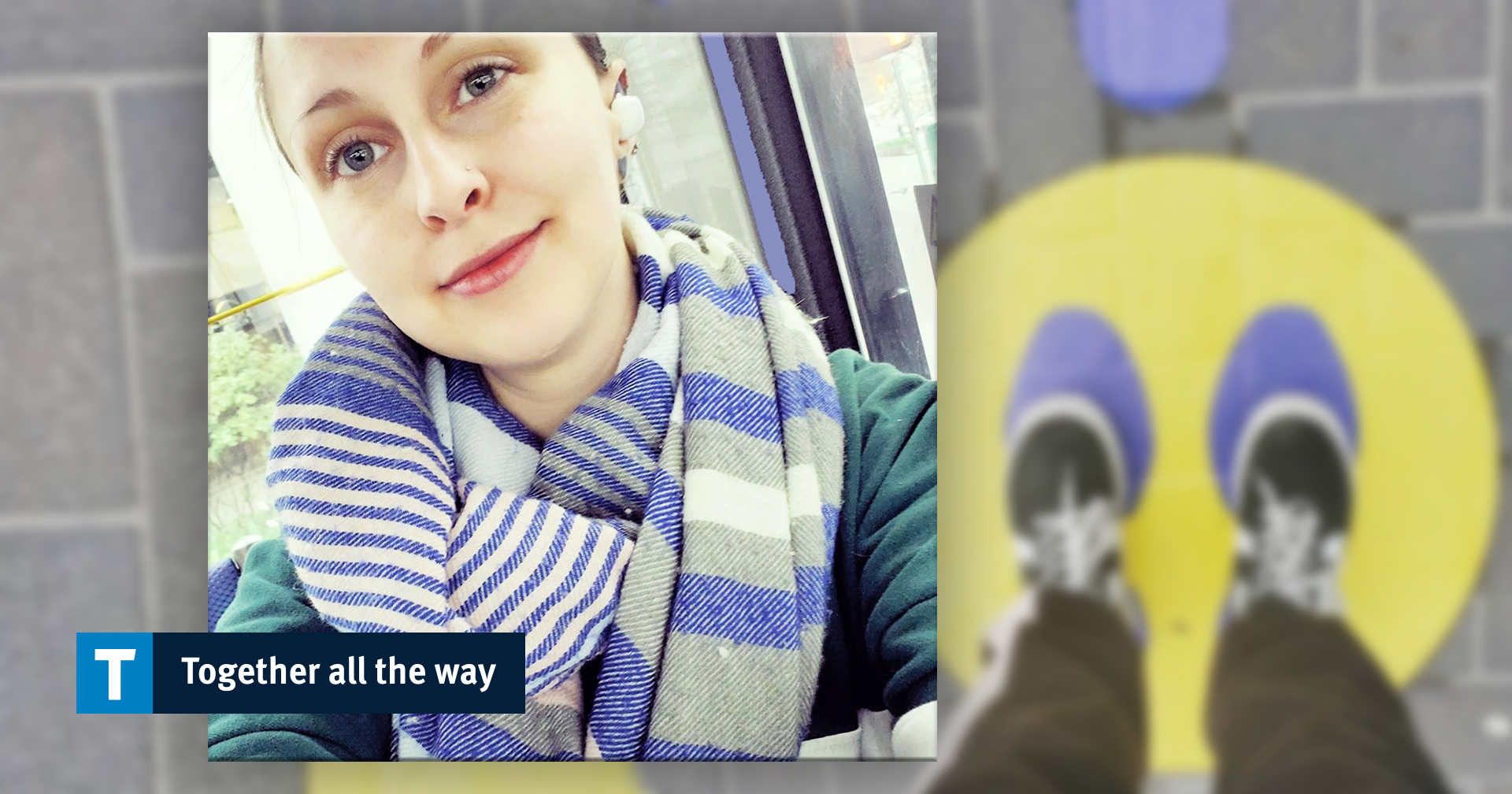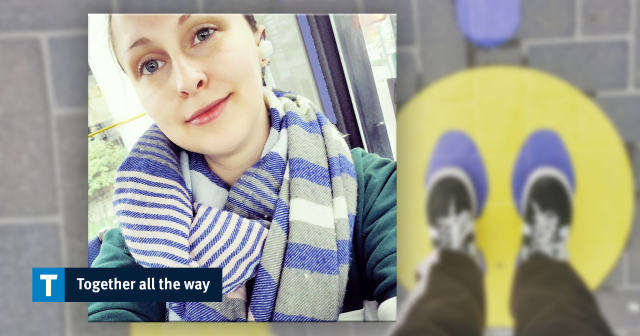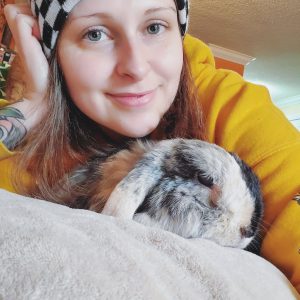Taking care of kids of frontline workers
Taking care of kids of frontline workers


Ava works as an administrator at a non-profit childcare facility that looks after kids of frontline workers. She also regularly posts uplifting Instagram Stories while getting to work on public transit, sending kind words of support to all the essential workers and encouraging everyone who does not need to commute to stay home. She’s also a singer, songwriter and bunny rescuer, but our story focuses on Ava’s full-time job because it happens to be one of the essential professions in light of the COVID-19 pandemic.
We managed to get in touch with Ava just before her morning commute to learn more about her and the important work she does.
Ava moved to Vancouver in 2011 after leaving school in Southern Ontario to look for a life that would be purposeful and enjoyable. She found these things in her work at Hudson Out of School Care Society based in Kitsilano. Ava’s office shares the same building with a preschool, which is a small yellow schoolhouse located on the grounds of Hudson Elementary School. She has been working there for five years.
“I find it really fulfilling because you really get to be a part of these children’s lives. One of the favourite parts of my day is when I get to interact with all the children. They just bring you so much joy.”
Hudson Out of School Care Society was founded in the 1970s with the support of government funding and help from parents who wanted affordable childcare before and after school. While the childcare facility usually takes in kids from the local community, beginning this week (March 30,2020), the facility started accepting only the children of essential workers with the guidance of Vancouver Coastal Health, the Ministry, and the Vancouver School Board.
“We have children of nurses, people who work in pharmaceutical industry, infrastructure… You know, when we are thinking of essential workers, we tend to think of doctors and nurses, but there are so many more people who are crucial during these times.”
Ava and the whole team are working on getting the ball rolling and keeping the channels of communication open with families who require childcare. She explains, “If you’re a nurse, for instance, you can tell other nurses at the hospital that we’re open, and we’ll take in new children at this time.”
With the events quickly unfolding, the childcare staff is making sure that all the kids know how to protect themselves. “We’re communicating things like washing your hands every hour and not touching your face to children through stories and books. We’re trying to make it fun and informative.”
She also added, “I have to give [my appreciation] to childcare staff, who are still coming to work and taking care of kids. They’re amazing.”
These days Ava uses public transit to get around. “I’m definitely a huge transit user. I take two different buses in the morning to go to work and then at night to get back. I also use the bus to get my groceries.” Before the pandemic Ava used car share sometimes but thinks that now it’s especially important to only go to essential places to keep ourselves and everyone else safe.
When asked if she feels safe commuting and going to work these days, Ava responded:
“For us essential workers, every day you get up, and you have to make a choice. It’s a really hard choice no matter what work you’re doing right now because there is a risk involved. But as long as everyone is doing their part, people are staying at home, keeping everything clean for frontline workers, everything should be fine.”
She wants to thank everyone, whether they are a frontline worker or working from home or not working, for making those hard decisions. “We all are doing our part here, and the choices we make affect everyone else.”
For those who are staying at home and wonder how they might help, Ava suggested that they can reach out to local initiatives and communities. “Around my building, we have elderly residents. So, I’ve been sanitizing and bleaching the door handles in my building. There are things that we can all do to keep each other healthy and safe.”
We, at TransLink, applaud Ava and all the frontline workers who are doing so much during this difficult time. Do you have a story like Ava’s or know someone doing good these days? If so, we’d love to hear from you via our social channels or email.







I Also Agree With your thoughts,
Thanks For Write it.